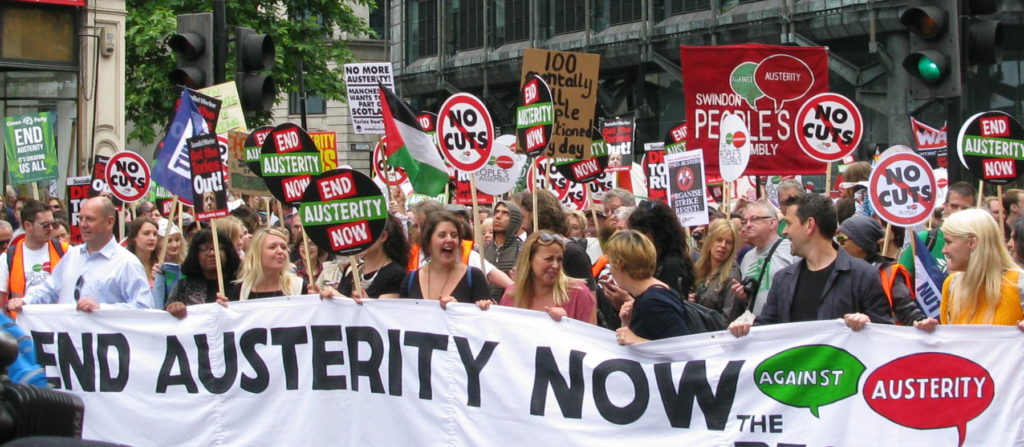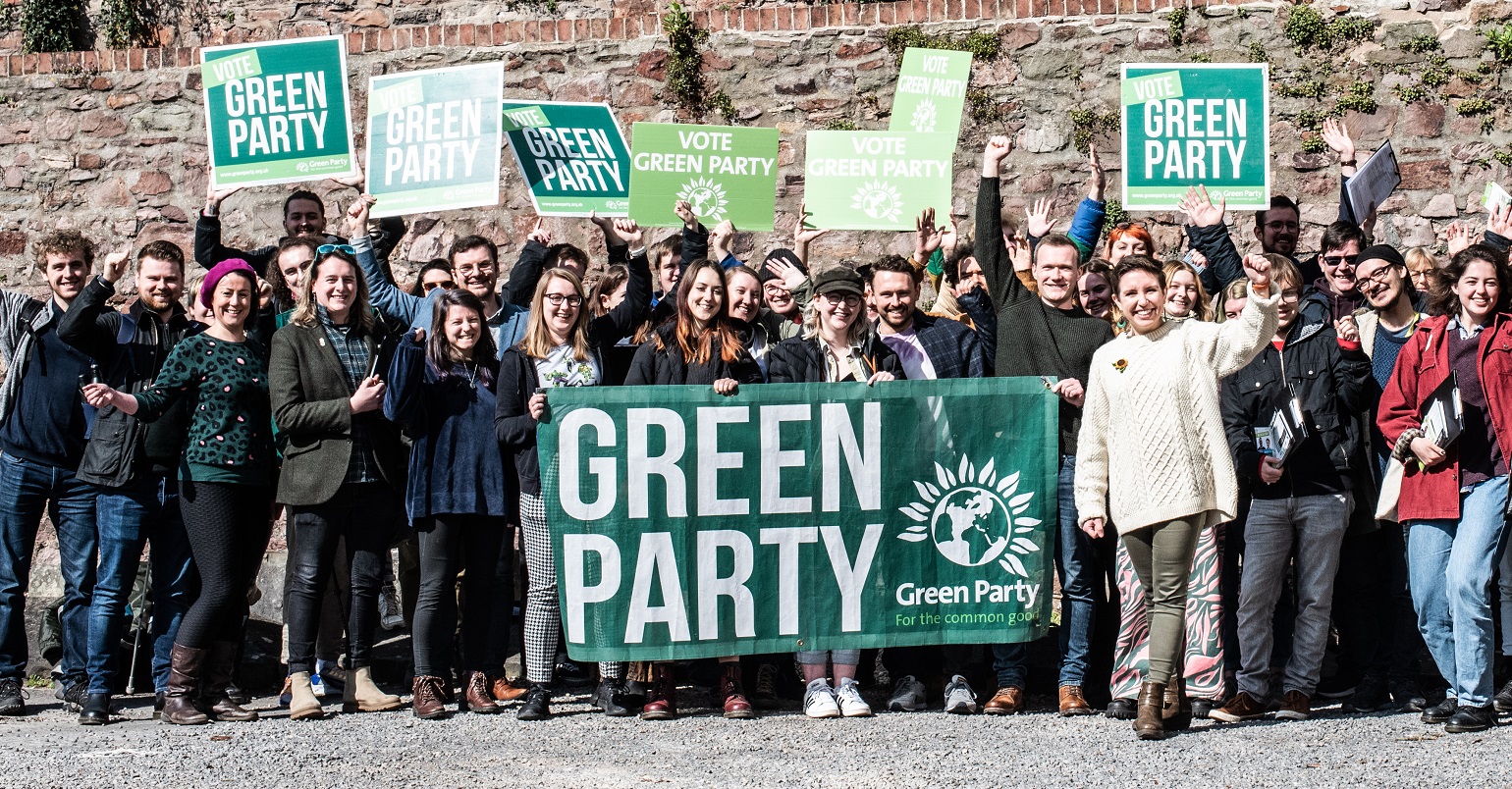Forced labour was popular rhetoric, it won't be popular policy
There has to be a line. There has to be a point at which the balance tips. There has to be a moment when people see that too much ‘getting tough’ means unleashing inhuman brutality. The government may be evil, but they are not, usually, stupid. As they implement today a policy which will force sick and disabled people to work for no pay, they think they know what they are doing. They think it will be a popular move. But, surely, this crosses the line.
If you knock on doors in working class areas, people often complain of neighbours whose curtains are drawn whilst others rise for work; who have lots of children but no job; who, they say, are scrounging off, or defrauding, the benefits system.
Usually, if you knock on the doors of the houses pointed at by these angry neighbours, you find a different story: a mother sick with cancer; a grandparent unable to find work in a faltering job market; a struggling bereaved father with a house full of small children to care for.
But the angry neighbour doesn’t know these tales, doesn’t knock on the door to ask. And attempts to channel their rage towards bankers, or Tories, or benefits traps, rarely work. For those are distant problems, but they have to see their neighbour’s still-sleeping house through bleary eyes every morning.
That they don’t know their neighbours is, of course, no accident. Breaking communities is a key pillar in the political strategy of neo-liberalism. “There is no such thing as society” was not just a philosophical belief. It was a wish. Flexible labour markets, short assured tenancies, 1960s “slum” clearance: all had the same effect: breaking the bonds of working class communities. Add to this a tabloid media dedicated to divide and rule: teaching us to hate those poorer than us and ignore those stealing from us; and we have a carefully concocted recipe for division.
The result is bleak. In 2008 – shortly after the financial crisis, the Sun reported a poll showing that “benefits cheats” were the thing people in Britain found “most annoying” (the credit crunch came in second). The most recent British Social Attitudes Survey showed less support for our welfare state than ever before. It showed more and more negative attitudes towards those who depend on it. The Tories know this.
During their 2010 election campaign, they had a string of disastrous posters: “I’ll cut the deficit, not the NHS” threatened to make the election a referendum on the one question Labour were sure to win. Then it was the tomb stone, and Labour’s inheritance tax: winning a small policy battle, but losing them the “who do you think has your economic interests at heart” question, where they trailed in the polls. Then it was “I’ve never voted Tory (some illegible writing)” poster. The campaign was dire, the polls tightened, and for a while it looked like Brown might, just, cling on.
The Tories clearly realised this. In a tight spot, they sacked their publicists and went back to Maurice Saatchi. The next round of posters didn’t make the same mistakes. And among them, was this one – a surefire vote winner: “Let’s cut benefits for those who refuse work”.
The vote leakage stopped.
This is a message which sounds popular. I imagine that when the Tories do focus groups on it, it is popular. Why should we give benefits to those who refuse to work? But good posters do not good policy make: especially when those posters are based on a lie. Popular slogans can rapidly lose their popularity once they are implemented, especially when the delivery requires revealing the brutal deception at their core: very few of the people on benefits are ‘scroungers’. Very few of those who claim sick or disability benefits aren’t truly sick or disabled. In fact, according to the best estimate by the Department for Work and Pensions, it is only 0.5%. The cases reported in the tabloid papers are news not because they are common, but because they are rare.
It is popular to believe that most of those those who claim disability benefits are in fact just lazy. But very few think that the disabled person they know – their parent, or sibling, or friend – is lazy. When asked if we should make those who refuse jobs work, my suspicion is that those who say ‘yes’ would never consider that the person referred to is their loved one: the parent who is genuinely sick, the second cousin who is disabled.
The Sunday Herald reports that 340,000 disabled people have been signed up to the government’s new scheme. This means 340,000 people who will have a story to tell – stories which the government won’t want us to hear, stories which challenge even the most callous to question whether forced labour was ever the answer; to question the cruelty of a governments whose only roots in real human suffering stem from carefully topiaried focus groups.
Cracking down on fictitious benefits scroungers is a popular policy. When behind in the polls, turning on those least able to defend themselves is a rhetorical trick which serves the right well the world over. But there has to be a line. There has to be a point where the balance tips. At some point, people realise that the “scrounger” in question isn’t someone else: they mean your sister, your partner’s brother, your friend’s cousin, your colleague’s mother.
From today, the stories will start to seep out: not in a flood, but in a drip. And they will corrode the foundations of this brutal government: because for all of the tabloid bile and all of the slick, Saatchi posters, real human stories about those we love and trust are the most potent weapon against a government. And no matter how they spin it, what they are truly doing will soon become clear: in Britain, as of today, our leaders are sending our disabled friends into forced labour. And that crosses the line.





Hello very nice website!! Guy .. Beautiful .. Wonderful ..
I will bookmark your blog and take the feeds additionally?
I’m happy to seek out a lot of helpful info here in the submit, we’d
like work out more techniques in this regard, thanks for sharing.
. . . . .
Politicians always point to “waste, fraud, and abuse” and pretend that if we just eliminate those then we won’t need to make the hard choices about what to fund. But there is no way to avoid the hard choices, and we need to face them openly. Some people will be given government funds; some won’t. The real question is: who will decide where the line is to be drawn? I don’t think that Westminster should make these decisions for the people of Scotland, so I support independence.